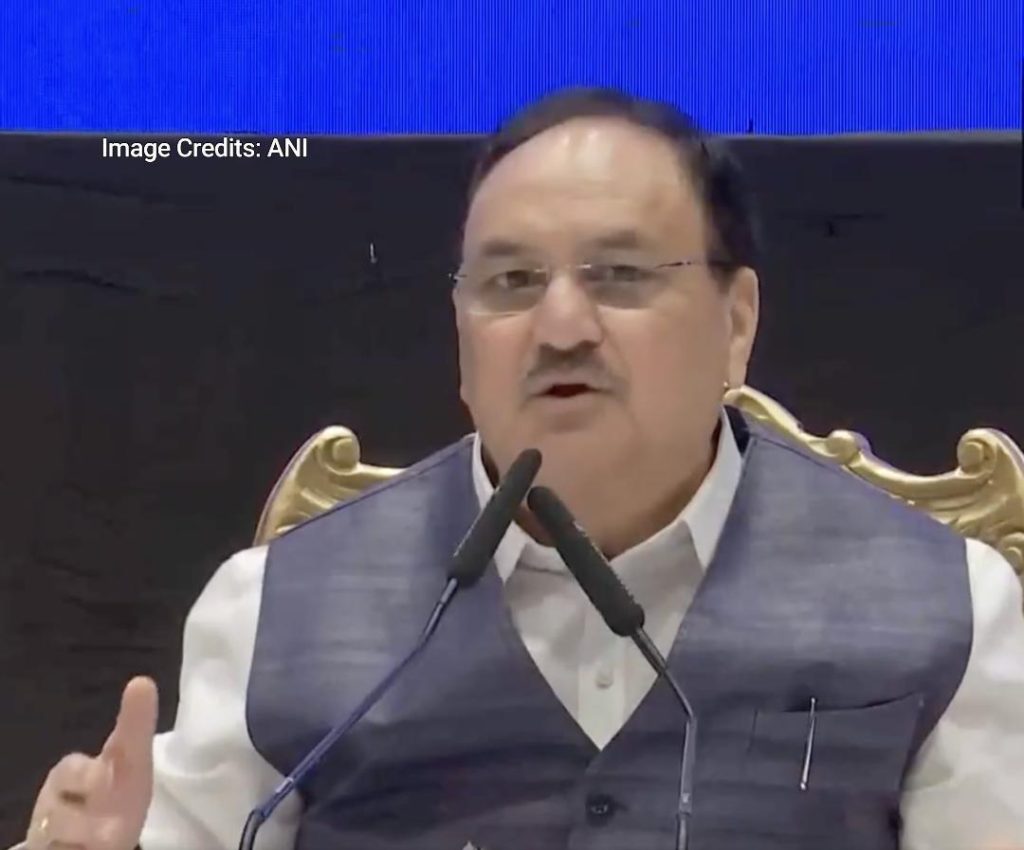
NDA to Expose ‘Emergency’ on its 50th Anniversary: JP Nadda
As the 50th anniversary of the infamous ‘Emergency’ nears on June 25-26, the National Democratic Alliance (NDA) has announced its plans to expose the dark chapter in Indian history and inform the people about those who “tried to strangle democracy”. This declaration was made by BJP National President JP Nadda, who emphasized the importance of remembering the past and learning from it.
The ‘Emergency’ was a 21-month period of authoritarian rule imposed by then-Prime Minister Indira Gandhi on June 25, 1975. During this time, fundamental rights were suspended, and opposition leaders were arrested, tortured, and silenced. The era was marked by widespread human rights abuses, censorship, and suppression of free speech.
Nadda’s remarks come after Prime Minister Narendra Modi chaired a high-level meeting of Chief Ministers (CMs) and Deputy CMs of BJP-led NDA states. The meeting aimed to discuss the significance of the ‘Emergency’ and the need to remember its lessons.
“We will expose the Emergency and inform the people about those who tried to strangle democracy,” Nadda said, emphasizing the importance of educating the younger generation about the consequences of authoritarian rule. “The Emergency was a black chapter in Indian history, and we must remember it to ensure that such a situation never arises again.”
The BJP National President’s statement is significant, as it highlights the party’s commitment to upholding democratic values and protecting individual freedoms. The NDA’s plan to expose the ‘Emergency’ is likely to involve a series of events, including seminars, conferences, and cultural programs, aimed at educating the public about the period.
The ‘Emergency’ was a traumatic event in Indian history, and its 50th anniversary provides an opportunity for the nation to reflect on the past and learn from its mistakes. The NDA’s initiative is a step in the right direction, as it acknowledges the importance of remembering the past and preserving democracy.
The ‘Emergency’ was a result of Indira Gandhi’s growing authoritarianism, which was fueled by her desire for absolute power. The period was marked by widespread human rights abuses, including the arrests of opposition leaders, journalists, and activists. The government also imposed strict censorship, banning critical publications and silencing dissenting voices.
The era was marked by several notable events, including the arrest of Jaya Prakash Narayan, a prominent opposition leader, and the forced sterilization of millions of people, particularly in rural areas. The government also imposed strict controls on the media, restricting the freedom of expression and the right to information.
The ‘Emergency’ was lifted on March 21, 1977, after the Congress party suffered a crushing defeat in the general elections. The period marked a low point in Indian democracy, and its anniversary serves as a reminder of the importance of protecting individual freedoms and upholding democratic values.
In recent years, there have been growing concerns about the erosion of democratic institutions and the rise of authoritarianism in India. The ‘Emergency’ provides a cautionary tale about the dangers of unchecked power and the importance of protecting democratic norms.
The NDA’s plan to expose the ‘Emergency’ is a timely reminder of the need to preserve democracy and protect individual freedoms. As the nation prepares to mark the 50th anniversary of the ‘Emergency’, it is essential to remember the lessons of the past and work towards creating a more democratic and just society.
In conclusion, the NDA’s decision to expose the ‘Emergency’ is a significant step in the right direction. By remembering the past and learning from its mistakes, India can ensure that it does not repeat the mistakes of the past and continues to uphold democratic values.
News Source: https://x.com/ANI/status/1926589565482975741






